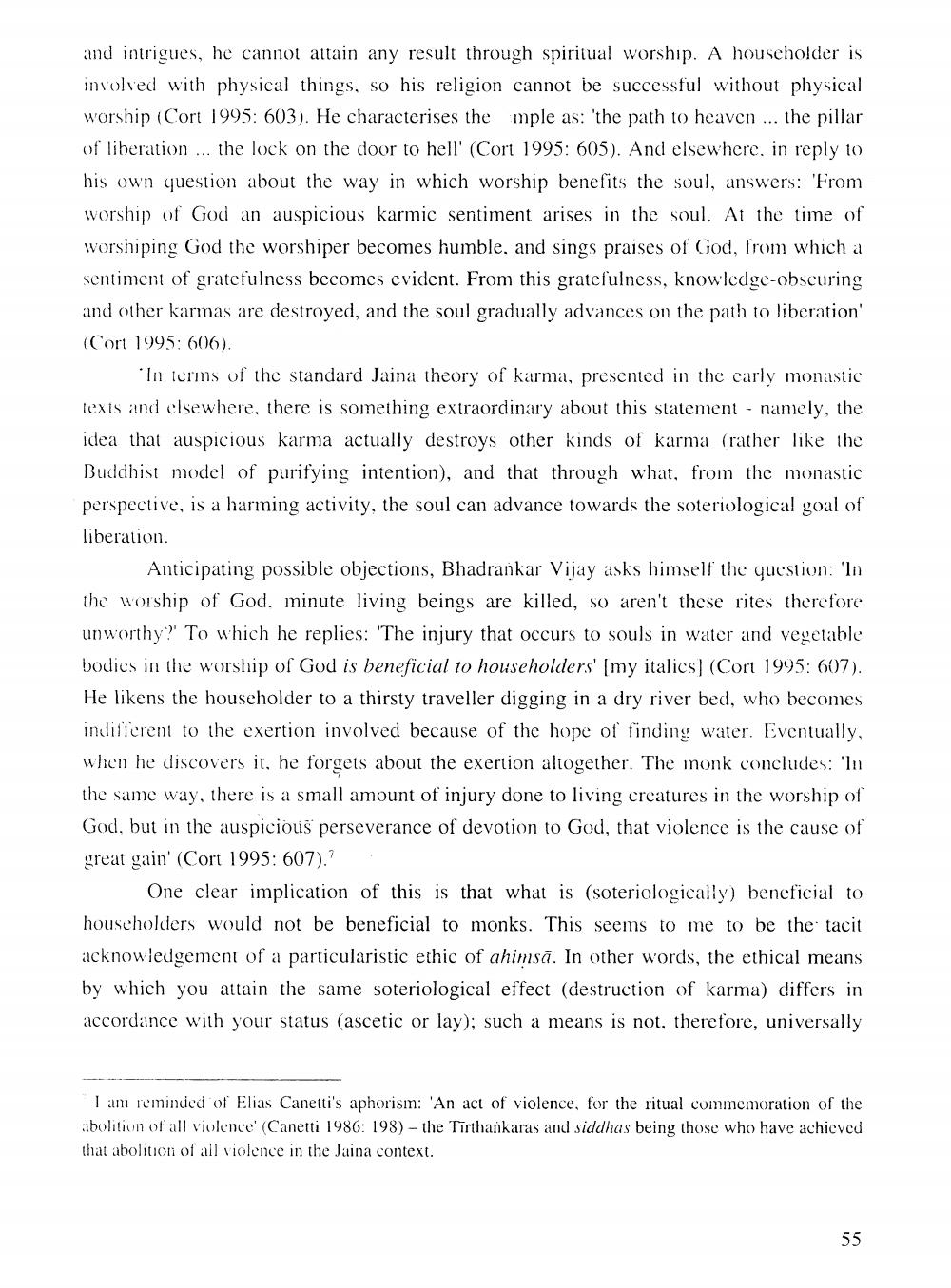________________
and intrigues, he cannot attain any result through spiritual worship. A householder is involved with physical things, so his religion cannot be successful without physical worship (Cort 1995: 603). He characterises the mple as: 'the path to heaven ... the pillar of liberation ... the lock on the door to hell' (Cort 1995: 605). And elsewhere. in reply to his own question about the way in which worship benefits the soul, answers: 'From worship of God an auspicious karmic sentiment arises in the soul. At the time of worshiping God the worshiper becomes humble, and sings praises of God, from which a sentiment of gratefulness becomes evident. From this gratefulness, knowledge-obscuring and other karmas are destroyed, and the soul gradually advances on the path to liberation' (Cort 1995: 606).
In terms of the standard Jaina theory of karma, presented in the early monastic texts and elsewhere, there is something extraordinary about this statement - namely, the idea that auspicious karma actually destroys other kinds of karma (rather like the Buddhist model of purifying intention), and that through what, from the monastic perspective, is a harming activity, the soul can advance towards the soteriological goal of liberation.
Anticipating possible objections, Bhadrankar Vijay asks himself the question: 'In the worship of God. minute living beings are killed, so aren't these rites therefore unworthy?" To which he replies: 'The injury that occurs to souls in water and vegetable bodies in the worship of God is beneficial to householders' [my italics] (Cort 1995: 607). He likens the householder to a thirsty traveller digging in a dry river bed, who becomes indiferent to the exertion involved because of the hope of finding water. Eventually, when he discovers it, he forgets about the exertion altogether. The monk concludes: 'In the same way, there is a small amount of injury done to living creatures in the worship of God, but in the auspicious perseverance of devotion to God, that violence is the cause of great gain' (Cort 1995: 607).
One clear implication of this is that what is (soteriologically) beneficial to householders would not be beneficial to monks. This seems to me to be the tacit acknowledgement of a particularistic ethic of ahimsā. In other words, the ethical means by which you attain the same soteriological effect (destruction of karma) differs in accordance with your status (ascetic or lay); such a means is not, therefore, universally
I am reminded of Elias Canetti's aphorism: 'An act of violence, for the ritual commemoration of the abolition of all violence' (Canetti 1986: 198) - the Tīrthankaras and siddhas being those who have achieved that abolition of all violence in the Jaina context.
55




